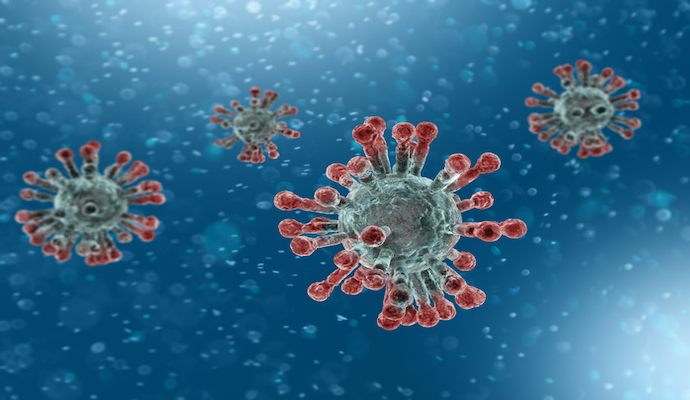J&J Launches Second Global Trial of Lead COVID-19 Vaccine
The trial will study the efficacy of a two-dose regimen of Johnson & Johnson’s COVID-19 vaccine candidate, Ad26.COV2.S, in nearly 30,000 participants globally.

Source: Thinkstock
- Johnson & Johnson recently initiated a second global Phase 3 clinical trial of its lead COVID-19 vaccine candidate, Ad26.COV2.S.
The trial, ENSEMBLE 2, is a pivotal, large-scale, Phase 3 trial that will study the efficacy of a two-dose regimen of Ad26.COV2.S for the prevention of COVID-19 in nearly 30,000 participants globally.
ENSEMBLE 2 is being conducted in collaboration with the UK National Institute for Health Research (NIHR).
“While a potentially safe and effective single-dose preventive COVID-19 vaccine would have significant benefits, particularly in a pandemic setting, Janssen’s COVID-19 vaccine program has been designed to be extremely thorough and driven by science,” a Johnson & Johnson spokesperson said in the announcement.
“We are investigating multiple doses and dosing regimens to evaluate their long-term efficacy,” the company added.
At the end of September, Johnson & Johnson announced the launch of ENSEMBLE, a global Phase 3 clinical trial for Ad26.COV2.S.
The ongoing trial is proceeding to enroll up to 60,000 volunteers with and without comorbidities associated with greater risk for progression to severe COVID-19.
Overall, the trial is studying the efficiency of a single dose of Ad26.COV2.S versus placebo.
Both the ENSEMBLE and ENSEMBLE 2 trials follow positive interim results from the company’s ongoing Phase 1/2 critical trial, studying the safety profile and immunogenicity of both a single-dose and a two-dose vaccination.
The announcement of the second global Phase 3 clinical trial comes just a month after the company paused the ENSEMBLE trial due to a participant reporting an unexplained illness.
But just two weeks later, the Independent Data Safety and Monitoring Board (DSMB) deemed it safe to resume the trial after experts failed to identify a clear cause for the patient’s medical event.
Johnson & Johnson highlighted that there was no evidence that Ad26.COV.S caused the event.
Other top pharmaceutical companies, including AstraZeneca, Regeneron, Pfizer, and Moderna have also recently released positive results from ongoing trials of their COVID-19 vaccines.
In mid-October, AstraZeneca announced that its long-acting COVID-19 antibody combination, AZD7442, will advance into two Phase 3 clinical trials at sites in and outside the US.
The first trial will evaluate the safety and efficacy of AZD7442 to prevent infection for up to 12 months in nearly 5,000 participants.
The second trial will evaluate post-exposure prophylaxis and pre-emptive treatment in approximately 1,100 participants, according to the announcement.
Then at the beginning of November, Regeneron released positive prospective results from an ongoing Phase 2/3 clinical trial evaluating its COVID-19 antibody cocktail, REGN-COV2.
The company stated that treatment with REGN-COV2 reduced medical visits related to COVID-19 by 57 percent through Day 29 and reduced related medical visits by 72 percent in patients with one or more risk factors.
Most notably, both Pfizer-BioNTech and Moderna found that their respective mRNA-based COVID-19 vaccine candidates were over 90 percent effective in participants with and without the coronavirus earlier this month.
But although both of the company’s vaccine candidates use the same technology and have very similar efficacy, experts noted a few differences between the trials and dosages.
First, Moderna enrolled just over 30,000 participants in its clinical trial, while Pfizer enrolled over 45,000 participants.
And while both companies spaced vaccine dosages out 28 days apart, Moderna measured efficacy in participants 14 days after administration and Pfizer measured efficacy just seven days after.
Therefore, participants vaccinated with Moderna’s vaccine had seven additional days to develop any immunity before they were counted.
It remains to be seen if these experimental COVID-19 vaccines will gain FDA approval. But if they do, they will be the first-ever authorized vaccines that use mRNA technology. This new development would not only help to combat the ongoing pandemic, but could also uncover an entirely new line of vaccines against various diseases, experts believe.
